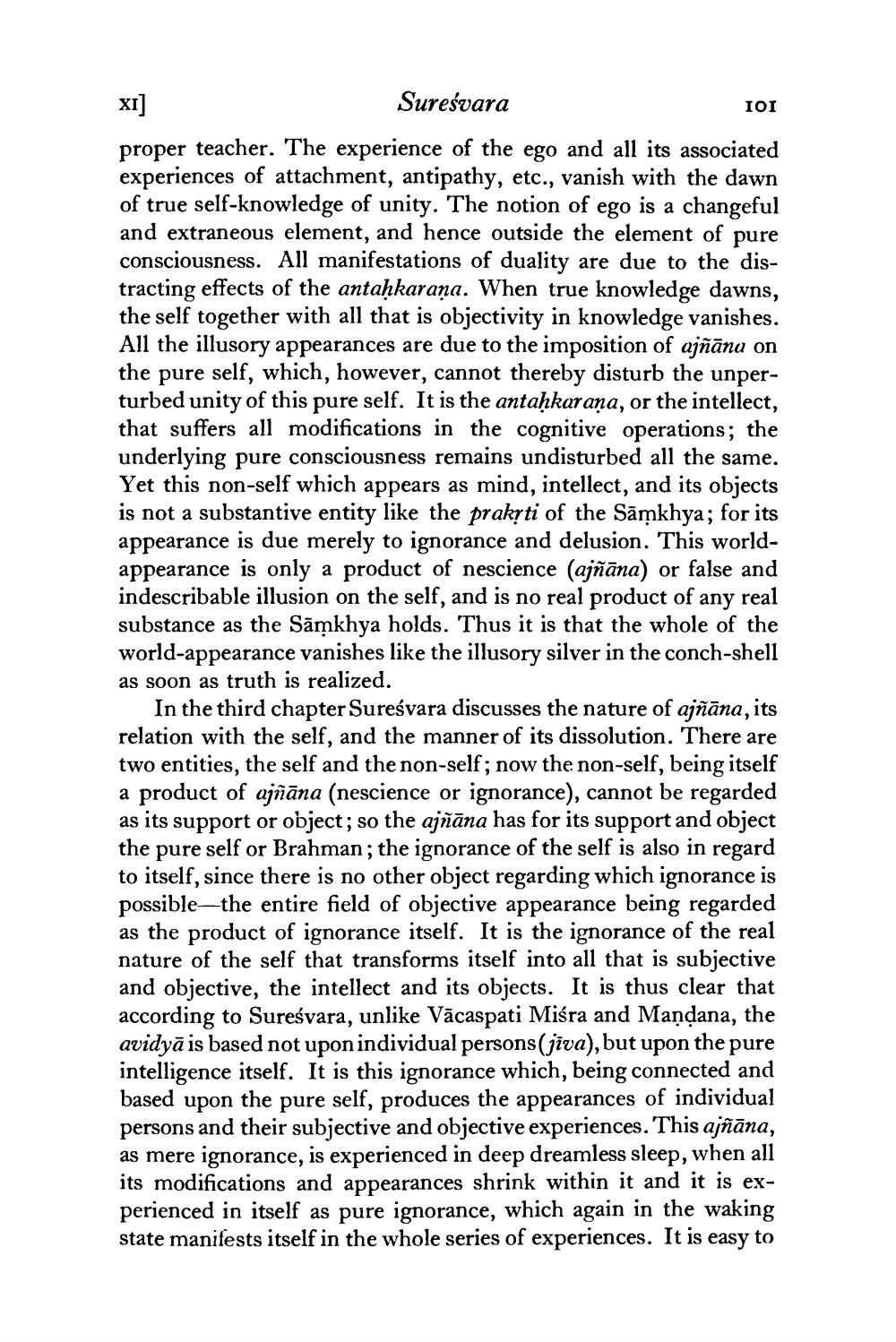________________
XI] Sureśvara
IOI proper teacher. The experience of the ego and all its associated experiences of attachment, antipathy, etc., vanish with the dawn of true self-knowledge of unity. The notion of ego is a changeful and extraneous element, and hence outside the element of pure consciousness. All manifestations of duality are due to the distracting effects of the antaḥkaraña. When true knowledge dawns, the self together with all that is objectivity in knowledge vanishes. All the illusory appearances are due to the imposition of ajñāna on the pure self, which, however, cannot thereby disturb the unperturbed unity of this pure self. It is the antaḥkarana, or the intellect, that suffers all modifications in the cognitive operations; the underlying pure consciousness remains undisturbed all the same. Yet this non-self which appears as mind, intellect, and its objects is not a substantive entity like the prakrti of the Sāmkhya; for its appearance is due merely to ignorance and delusion. This worldappearance is only a product of nescience (ajñāna) or false and indescribable illusion on the self, and is no real product of any real substance as the Sāmkhya holds. Thus it is that the whole of the world-appearance vanishes like the illusory silver in the conch-shell as soon as truth is realized.
In the third chapter Sureśvara discusses the nature of ajñāna, its relation with the self, and the manner of its dissolution. There are two entities, the self and the non-self; now the non-self, being itself a product of ajñāna (nescience or ignorance), cannot be regarded as its support or object; so the ajñāna has for its support and object the pure self or Brahman; the ignorance of the self is also in regard to itself, since there is no other object regarding which ignorance is possible—the entire field of objective appearance being regarded as the product of ignorance itself. It is the ignorance of the real nature of the self that transforms itself into all that is subjective and objective, the intellect and its objects. It is thus clear that according to Sureśvara, unlike Vācaspati Miśra and Mandana, the avidyā is based not upon individual persons(jīva), but upon the pure intelligence itself. It is this ignorance which, being connected and based upon the pure self, produces the appearances of individual persons and their subjective and objective experiences. This ajñāna, as mere ignorance, is experienced in deep dreamless sleep, when all its modifications and appearances shrink within it and it is experienced in itself as pure ignorance, which again in the waking state manifests itself in the whole series of experiences. It is easy to




